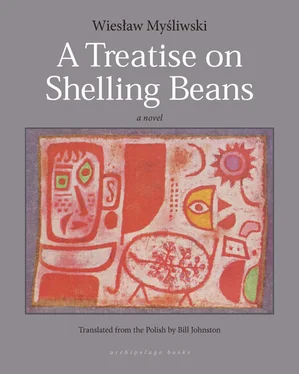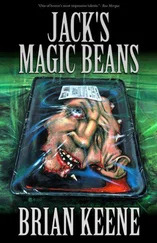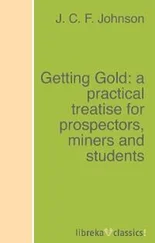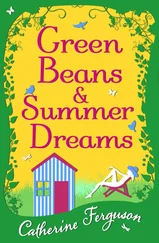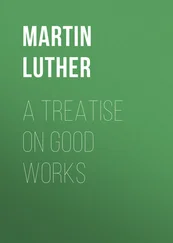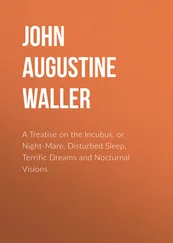“It should go here,” she said. “Don’t ever touch it. It’s a sacred thing.”
As you know, though, sacred things are more tempting even than sin. One day she left to go to the store in the village. I took down the hat and studied the wedding photo. She wasn’t much older than in the picture. The forester just looked like a forester. I thought to myself, he’s dead, she’s at the store, who’s going to see if I try on the hat? So I did.
There was also one room that she kept locked up. She put the key behind a picture of Our Lady with the Infant Christ. But since she locked the room, that meant she didn’t want me to go in there. And I didn’t. But once she left the key in the door and didn’t turn it. I felt an itch, and I peeked in. All I could see was a bulging bed covered with a patterned bedspread. Next to the bed was a cradle and a large wall mirror. I knew about the mirror. Whenever she washed her hair she’d tell me to do this or that, keep an eye on something, while she was brushing her hair in front of the mirror. And she’d go into that room, lock herself in and brush her hair for the longest time.
I looked into the mirror and let me tell you, in that first moment I had a fright when I realized it was me. It was like I was seeing myself for the first time. Like it was only now I was able to see that I existed. At home I never looked in the mirror, who looks at themselves at that age? When I was leaving for school in the morning, mother would always check me over, come here and I’ll comb your hair, because otherwise I wouldn’t even touch it. I couldn’t tear myself away from that mirror, I couldn’t believe it was me. Maybe because I was wearing the forester’s hat, which fell down over my ears. Or maybe because I’d always imagined I was a lot older than the unexpected reflection in the mirror. A ruddy, chubby, well-fed face. I ran my hand over my cheek and I couldn’t even feel a slight fuzz, but the boy in the mirror also ran his hand over his cheek, and I had the impression that he could already feel a fuzz. I stood and stood there, still unsure whether I should believe it was me. Especially because I didn’t like the way I looked. The only thing I liked was the forester’s hat. It even occurred to me to wonder, what if I were a forester?
I didn’t notice that in the meantime the forester’s wife had come back and was fuming. She burst into the room asking how I’d found the key. Snatching the hat off my head, she started saying that she was feeding me, looking after me, and here I was so ungrateful, so ungrateful, so this, that, and the other, going on till she made herself breathless. I’d never seen her like that before, gasping, her breasts heaving. Finally she sat down, exhausted, and cooled off a little.
“See what you’ve gone and done. I was thinking now that the war’s over … But now …”
I didn’t understand what she meant, but at least I learned that the war was already over.
Sometimes, especially when rain was in the air, you could hear a train rumbling and whistling a long long way off. Or if you put your ear to the ground, the rumbling sound would pass through it like electricity. Once I asked her:
“Where’s that train?”
“Over there.” She pointed.
“But where’s the station?”
“It’s that way. But it’s a long way away.”
Winter passed, spring, summer came along. One day I told her I was going to the woods to look for wild strawberries, and set off to find the station. I just went, with no particular intention in mind, just to see if maybe a train would come along. As I remember it today, I must have walked a good few miles. It was only a small station, but there were quite a lot of people waiting. I asked a railwayman when the train was due.
“Which direction?” he asked.
“It makes no difference.”
“What do you mean, it makes no difference? Don’t know you which direction you’re headed in? Well anyway, if you don’t know, one will be along any minute now.”
And in fact a train arrived soon after. It was bursting with passengers, there were even people sitting on the roofs of the cars. The ones who were waiting, it didn’t look like there’d be room for them. Especially because they all had suitcases, trunks, baskets, all kinds of bags and bundles. The ones already in the train pulled them in, while others pushed from the platform. I forgot to mention that the moment the train came to a halt, from the front and back two boys about my age jumped out. They were carrying baskets and as they ran along the platform one of them called:
“Pears! Apples! Plums!” While the other one shouted: “Tomatoes! Cucumbers! Kohlrabi!”
Hands reached out to them from the train windows, people bought from them. The train started to move off, but they ran down the platform and kept selling. At the last minute they hopped onto the step, just barely grabbing hold of the handrail. The train gathered speed and disappeared, and I felt kind of strange that I’d been left behind. I felt as if I’d been abandoned by the train and all the people in it. The railwayman I’d spoken to seemed surprised:
“Why didn’t you get on, if it makes no difference to you which direction you take?” He laughed.
He went into the station building, while I took my time going back. I walked slowly, bothered by various thoughts, and when I got close to the forester’s cottage I decided I’d run away from the forester’s wife. She started scolding me for having been gone so long, and see, you didn’t even pick any wild strawberries. And that in general I used to be more willing to do things, though I’d been much skinnier then and didn’t have the strength I had now.
I took a basket of hers and a pint-sized tin mug to have something to measure with when I was selling wild strawberries, blueberries, blackberries, or other such things. And in the morning, before she woke up I crept out of bed and ran away.
I began riding the train like the boys I’d seen. I sold whatever I could pick in the woods or steal from people’s orchards and fields. To begin with at any rate, because later, once I’d set some money aside, I bought things from the farmers. Sometimes they’d take pity on me and sell me produce for next to nothing, sometimes they’d even give me things for free. Then I’d sell the stuff either by the piece or by the mugful. If it was by the mugful, the person would need to have a small bag or at least a sheet of newspaper. I slept at the stations. Most of the time, though, I was riding. I’d hop from one train to another at the passing places, then just keep going, and do that the whole time. I got to know other boys who rode the trains like me, selling this or that. They taught me a lot, what was most profitable, what not so much, what was most popular and at what times. What sold best in different trains, morning trains and evening trains, there really was a big difference. In slow trains and expresses. Takings were lousiest in express trains. The express only ran once a day. Or for instance what people tended to buy in crowded trains versus less crowded ones, in second class versus third class. Back then second class was like first class today, and third class was like our second class. When you can charge more, when people won’t pay as much. Sales were best when the train was packed. Except that making your way through a crowded train presented quite a challenge. Often the conductors couldn’t even be bothered to check anyone’s tickets. But at that age I was half the size I am now, and nimble. When I got better at it, I sold lemonade too. That was when I did the best business. Plus of course it never went bad.
One time I was going through a second-class car, second class usually wasn’t as full, I called out:
“Lemonade! Lemonade! Pears! Pears! Apples! Apples!”
Читать дальше
